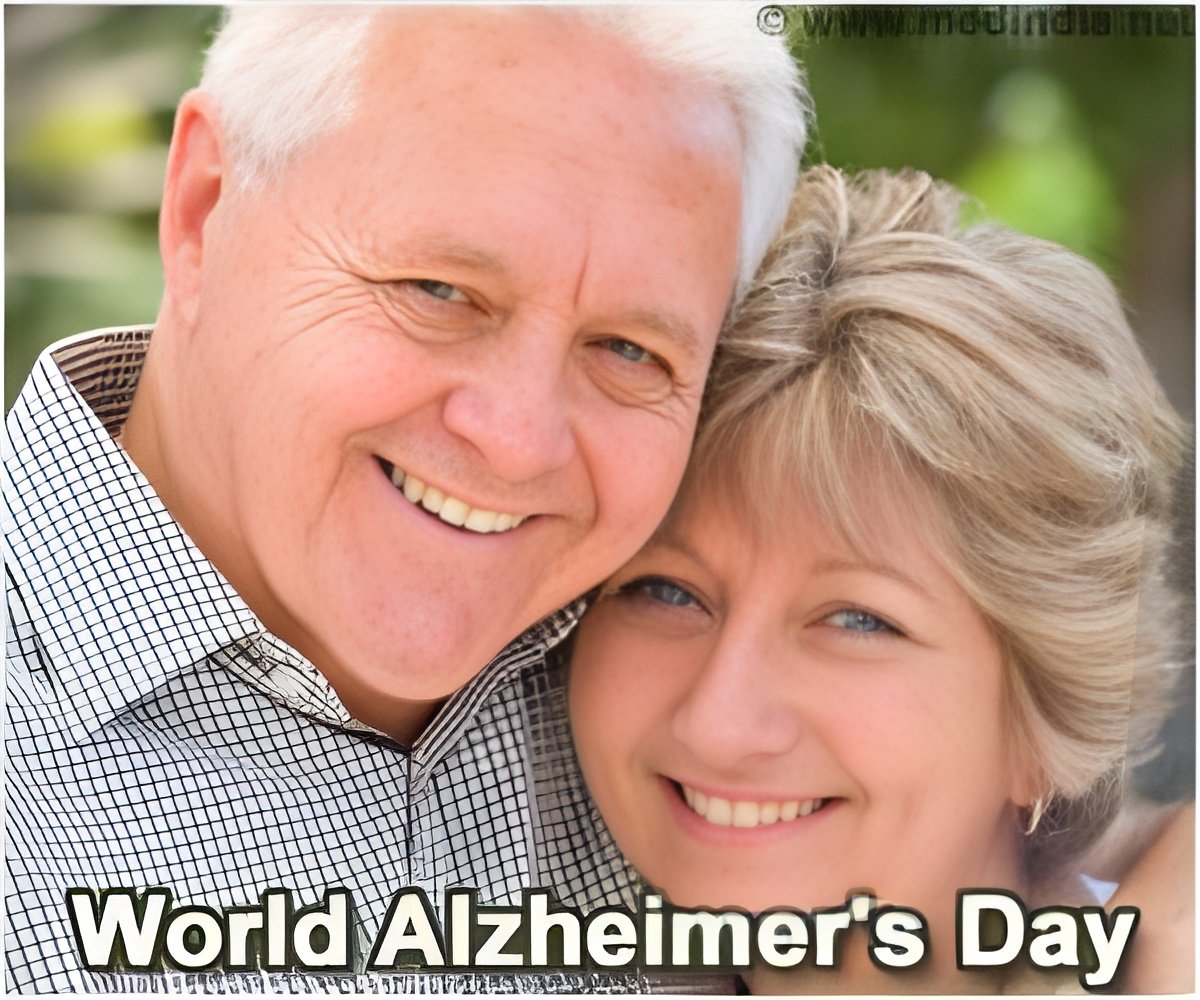World Alzheimer’s Day celebrated on September 21st, 2011, seeks to educate the public about the early signs of dementia with its theme ‘ Faces of Dementia’.

Understanding Alzheimer’s Disease
Alzheimer's disease (AD) is a complex brain disorder, which takes its name after the German physician, Alois Alzheimer, who first identified the disease in 1906. Alzheimer's disease is the most common form of dementia affecting people over the age of 60.
Each year about 350,000 fresh cases of Alzheimer’s disease are diagnosed. The risk is higher as people catch up with age. Thankfully, it is a rare occurrence among the younger lot. Hereditary factors contribute to 5% of the cases. A strong family history of dementia is a sure risk factor. Early-onset Alzheimer’s disease can strike anywhere between 30-60 years.
Alzheimer’s, is a degenerative disease of the central nervous system. Along with lapses in memory, the patient’s mental abilities also take a beating, albeit gradually. Patients also portray behavioral changes, and gradually thinking and intellectual tasks become extremely difficult. The loss is irreversible. Ultimately, the patients forget their identity, and simply exist.
Patients with Alzheimer's face huge problems with memory, judgment, and structured thought process. Thus their normal life gets affected. The disease also causes alterations in mood and behavioral changes. Alzheimer’s advances differently in each person; it is crucial to detect the disease early, so that treatment outcomes are positive.
In India, statistics show that women outnumber men as victims of this disease.
Dementia poses a huge health challenge considering the 100 million 60+ senior citizens in India. These figures are only expected to rise to 198 million by 2030, signaling the need for more awareness about the condition.
Spot the Signs Early
• Memory loss is one of the tell-tale signs of Alzheimer's disease. Victims may not be able to recall newly learned information. Often, they may request for the same information repeatedly. Some of them may begin to depend on aides or family members to help them remember details.
• Problem with oral and written communication- Victims may experience difficulty with words, especially in recalling the right words. They may also have difficulty participating in a conversation. Often, they may end up repeating themselves, may forget where they started off or may have trouble finding the right word.
• Judgment and even routine decision making abilities get compromised. They may seem confused handling money.
• Time/place confusion- Some of the early signs of the condition is when victims are confused about date and time. Some of them even forget where they are and may have trouble in understanding situations.
• Victims may misplace items and may have no memory or reference to retrace their actions.
• Difficultly in planning and problem solving skills, especially if victims were able to execute such tasks with ease in the past, is a sign of approaching dementia. Some victims may also portray trouble with concentration and may take longer to complete familiar tasks at home.
• Vision problems, judging distances- Some of the early signs could also be trouble with reading, as well as in judging distances. Many are unable to distinguish colors and contrasts.
• Being withdrawn and aloof from social activities can be an early indication to seek help as many victims begin to avoid activities they were used to. Most victims stop socializing or talking to friends.
• Changes in mood and personality – Many victims portray changes in personality and behavior. They may experience mood swings, anxiety, and fear. There is a tendency of these victims to get angry or upset without provocation. Depression is also a sign to watch out for.
Benefits of Recognizing Symptoms Early
• Evidence-based treatment, care and support is sacrosanct for enabling relief to victims of dementia. This can be realized to its fullest only if the condition is diagnosed in the initial stages.
• Early diagnosis of the disease helps families and the victim to deal with the condition with more confidence. Evidence has shown that early diagnosis reassures caregivers and gives them more time to get over the initial negative emotions.
• Early diagnosis also helps victims plan for their future at a time when it is still possible for them to make important decisions about their care.
• Early diagnosis opens the doors to available therapies, which can help improve cognitive abilities and thus impact their quality of life positively.
• Early therapeutic interventions are a great help in treating depression among victims, support the role of the caregiver and also improve cognitive function in the victims. Interventions to treat victims are surely more effective when begun in the early stages of the disease.
Spotting the signs of dementia early can make a world of difference to victims, as profound as the difference between 'living' and merely ‘existing’. On this day let us not 'forget' the victims of Alzheimer’s disease, instead join the world in creating awareness about the symptoms, risk factors and the importance of diagnosing the disease early.
Source-Medindia










